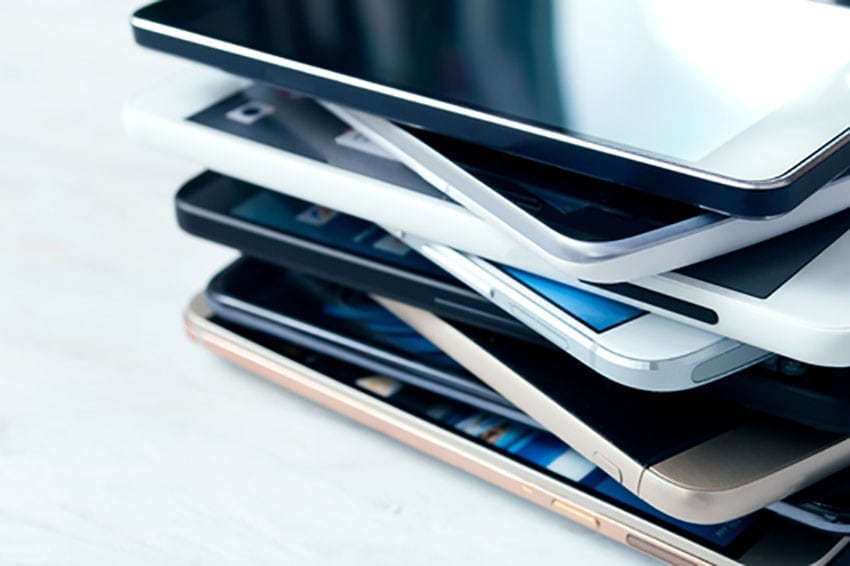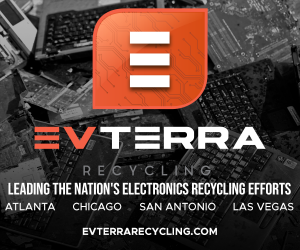
Certification and standardized grading can bring much-needed transparency to the refurbished device market, according to the CEO of Phonecheck. | Daniel-Krason/Shutterstock
I used to run a business that acquired and sold pre-owned mobile devices. It was a great model – we could buy less-than-perfect phones and other devices inexpensively, and with a little effort and elbow grease, sell them for a bit more.
People generally appreciated the value associated with used devices, although admittedly the transparency into the history and functional status of some devices often left a lot to be desired. In those early days, people were mostly content to take their chances on Craigslist, eBay and corner retail stores, hoping their product worked as advertised, and not having much recourse if it didn’t.
What the industry needed was a revolution, a movement that would potentially mirror the established acceptance and legitimacy of buying used cars.
A combination of factors is fueling the growth of the refurbished electronics industry: recession-constrained and value-driven consumers, annoyance with OEMs’ unrelenting commitment to planned obsolescence, marginal model-to-model improvements each year, the right-to-repair movement and increasing environmental sustainability woes with a greater awareness of the e-waste crisis.

Chris Sabeti
Indeed, market forecasters predict the used mobile device market will outpace the growth of the new model sector in 2023.
But until now, shopping for used devices has been a bit of a buyer-beware Wild West, leaving shoppers skeptical of inconsistent product quality, unknown device histories and a general lack of transparency and accountability from resellers. In order for the sector to grow successfully, we need better standards.
As the sector matures, signs of a more structured ecosystem are making an appearance in the buyer-seller experience, paralleling a similar evolution we saw in the used auto industry, which was bolstered by the development of comprehensive and independently verified vehicle reports from the likes of CarFax. This type of data provides a sense of authentication and transparency that your friendly neighborhood used car lot could not provide on their own.
That same level of transparency is now available in the refurbished device space, thanks to robust diagnostics tools and procedures that guide and certify the refurbishing process in order to deliver reliable, high-quality renewed devices.
A certification and detailed view of device history from a trusted diagnostic and erasure provider significantly improves buyer trust when purchasing refurbished devices, which is good for consumers’ wallets and more sustainable for the planet. Objective, standardized grading processes and protocols for used devices is also a step forward, and marketplaces in the consumer electronics sector now know this.
Certification from Phonecheck includes an 80-point inspection, certified erasure, and clear, consumer-friendly results by way of device history reports. These reports include financial, carrier and blacklist status, lock detection, touch, sound and battery health, repair history and more.
Most reputable sellers are conducting diagnostics and data-wipe. Certification takes this a step further and gives the seller an added layer of credibility. This allows buyers and sellers to be on the same page in terms of level of quality and functionality.
Technical knowledge will vary whether you are selling to an end user, refurbisher or another enterprise processor. Certification invites both parties to common ground with straightforward reports so that no matter what you are looking for in a device, you can be sure a given one will provide it.
This reduces customer complaints, return merchandise authorizations and ultimately, overhead. Certified listings often sell for higher resale values, upwards of 5-10%, and a major value is the higher rate of conversion due to an increase in trustworthy devices.
Certifying devices is an important part of the diagnostic and evaluation process. For example, Phonecheck partners are able to utilize easy-to-use software with comprehensive training, 24-hour support, and little to no capital investment.
Multiple devices can be run simultaneously to complete diagnostics, inspection and secure erasure, meeting the highest industry standards, such as ADISA, R2, ISO and more. A label is created and matched to international mobile equipment identities (IMEIs) for report delivery to buyers via print, link or QR code.
It is clear that quality is improving among sellers and across marketplaces, but the reality is that most groups have their own set of standards. Certifying devices through a consistent set of standards and criteria can ensure that we are comparing apples to apples when communicating with enterprise buyers and end users.
No one will argue that giving devices a long life and keeping them out of the landfills makes sense, both economically and environmentally. But to really jump-start the circular revolution we all need to work toward instilling more buyer confidence and trust. It’s a movement that will benefit everyone in the chain – OEMs, refurbishers, resellers and online marketplaces – and especially our planet.
Chris Sabeti is the CEO of Phonecheck, a Los Angeles-based mobile device certification provider that uses advanced software to evaluate and pull device history data for a device – essentially a Carfax for refurbished electronics.
The views and opinions expressed are those of the author and do not imply endorsement by Resource Recycling, Inc. If you have a subject you wish to cover in an op-ed, please send a short proposal to [email protected] for consideration.
More stories about mobile devices
- Assurant acquires OptoFidelity to speed repair and reuse work
- Australia opens world’s first battery-in-device shredding plant
- Assurant sees 60% rise in Q2 trade-in values



